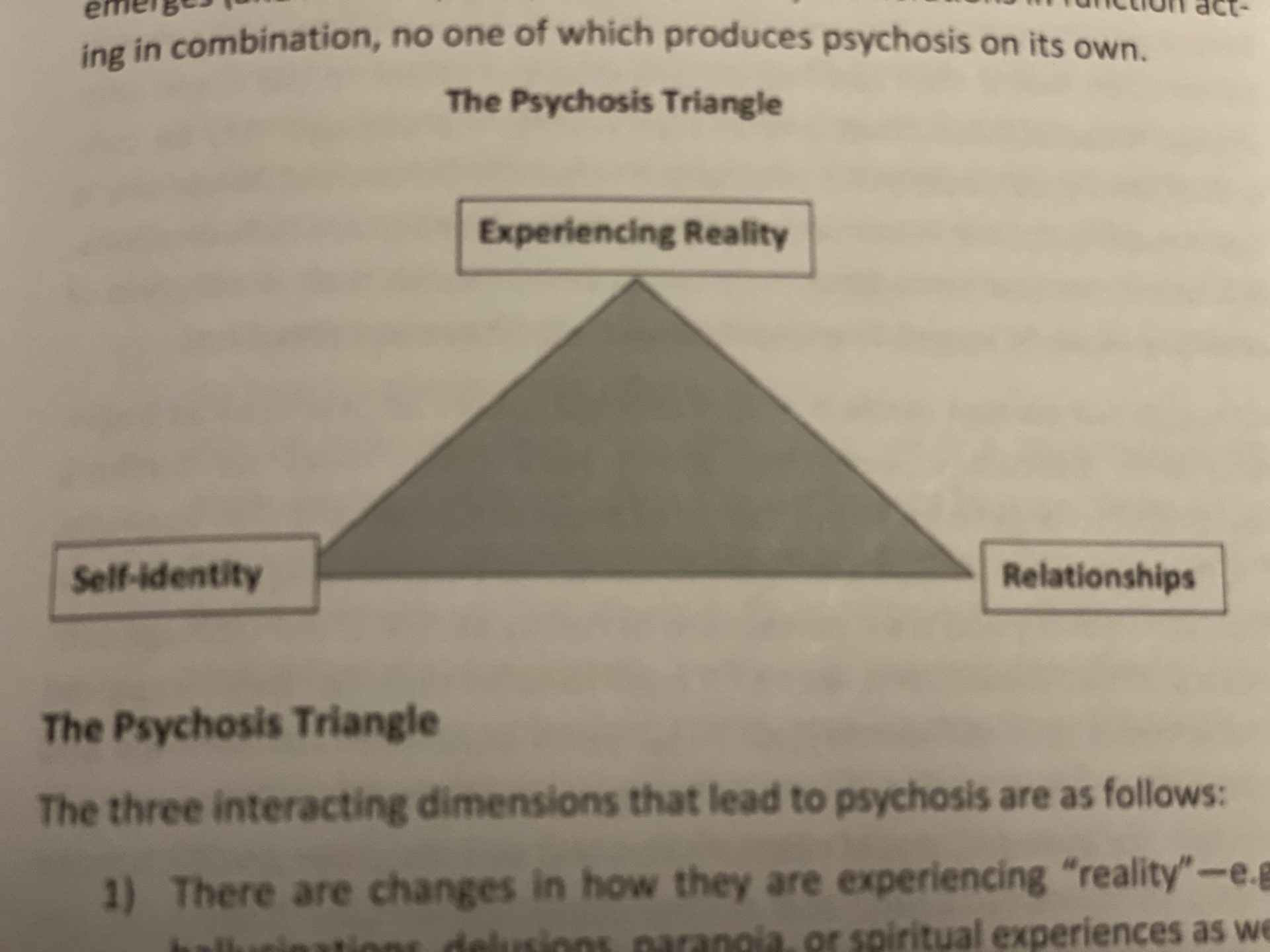“When the church takes seriously its call to facilitate healing and life transformation as the Body of Christ, the world will be a different place…… one person at the time. We must reclaim a holistic view of what “abundant living” can be and help people achieve it.
His model is summarized in a triangle with three domains to be examined and addressed in treatment: self-identity, relationships, and experiencing reality. A page from the book is shown below. One may think about a comprehensive life recovery approach to mental health crisis as including these three “lowest common denominators” of treatment components. Assessing an individual treatment plan might include status evaluation in each of these three domains and strategies for addressing deficits in each area. The “experiencing reality” part could involve mental status exam, assessment of competency in activities of daily living, identifying unrealistic expectations of self or others, acceptance commitment therapy, counseling, and perhaps use of medication to improve focus and relieve intrusive cognitive or emotional symptoms ( cravings, moodiness, irritability, anxiety, depression, hallucinations, hyperactivity, compulsions, etc.) A 30 day self monitored worksheet of daily attitude inventory can help one connect with her responses to daily events and the variability, degree and range of reactivity. The “self-identity” part might include one’s self assessment of recovery resources ( personal internal and external “ strengths” as well as other resources available in the community that one can access) in various functional areas like spirituality, sobriety, physical health, mental health, emotional literacy and stability, legal issues, career history and status, and education. Titus 2 uses a customized self assessment for this. It also includes psycho-education on normal human development stages and one’s view of her own psychological age maturity relative to average mile markers at various age levels. We use an age level chart of abilities and competencies to help one identity areas in which she may need assistance to grow. Examination of one’s history of life-limiting patterns that have been habitually addressed in the same manner is accomplished through a 12 Step inventory process. Spiritual formation education, boundaries, Rokeach values survey and discussion of how one’s behavior has reflected her commitment ( or lack thereof) to stated values, and emotional literacy and management skills. The “relationships” component is addressed through mentoring, helping with resolution of isolation, abandonment, grief or shame, forgiveness, amends and reconciliation and establishing new circles of healthy and supportive social connections,- “family and friends.” Education about triggers, relapse behaviors, responses to conflict and other interpersonal emotional situations. Fostering hobbies, interests, and vocational development through exposure to new activities, volunteering, and training.”

![MPj04389070000[1]_phixr](http://disciplerofself.com/wp-content/uploads/2015/03/MPj043890700001_phixr.png)
